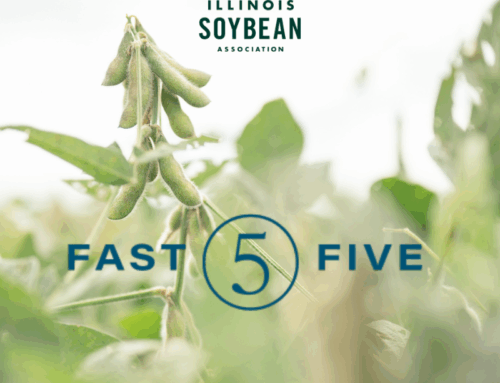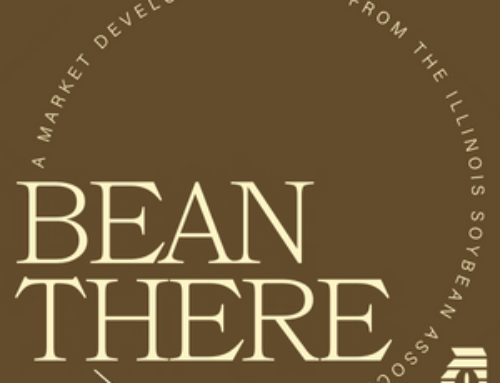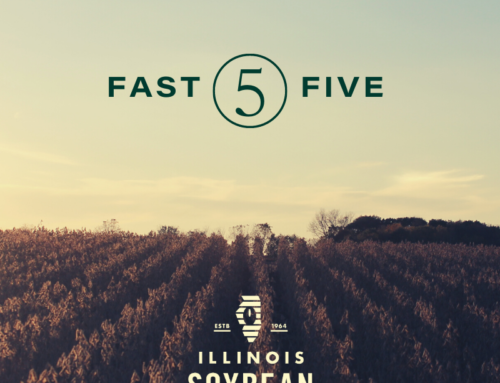BLOOMINGTON, Ill. (January 2, 2025) — In January 2025 the Illinois Soybean Association (ISA), in coordination with local partners including the University of Illinois Extension and local county Illinois Farm Bureaus, will host a series of five regional Herbicide Strategy workshops. These educational workshops will be designed to update farmers about changes in pesticide policy, help them understand the U.S. Environmental Protection Agency (EPA) Herbicide Strategy, and provide concrete steps they can take to prepare their farm operations.
Herbicide Strategy Workshops will be held:
- Dekalb County Farm Bureau Office – Jan. 20
- Illinois Soybean Association Office – Jan. 21
- UIUC Crop Science Research Education Center – Jan. 22
- Madison County Farm Bureau Office – Jan. 27
- Will County Farm Bureau Office – Jan. 28
Workshops will take place from 11:00 a.m. to 12:00 p.m. Anyone from the agricultural community is welcome to attend; a free lunch will be provided following the workshop. Those interested in attending should visit: https://www.ilsoy.org/latest-epa-herbicide-strategy-workshop-youre-invited/ or email Gracie Sheets (gracie.scheets@ilsoy.org) with any questions.
Herbicide Strategy Background
In August 2024, the EPA finalized its herbicide strategy, introducing significant changes to herbicide labeling nationally. The plan includes increased record-keeping and planning requirements for farmers to document pesticide runoff and drift mitigation measures for every field.
These policy changes stem from a 2011 lawsuit filed by the Center for Biological Diversity, which argued that the EPA was not meeting its Endangered Species Act (ESA) obligations when labeling pesticides. Known as the “megasuit” in the pesticide policy world, this case impacts all agricultural pesticide uses. In settling the case, the EPA committed to a comprehensive rewrite of U.S. pesticide policy, affecting farmers nationwide.
Moving forward, the EPA’s final Herbicide Strategy introduces several new requirements for Illinois farmers to mitigate the impact of agricultural herbicides on endangered species. Farmers must implement measures to limit herbicide runoff and drift, including adopting practices like cover crops, no-till farming, and creating drift buffers up to 320 feet. To prevent pesticide runoff, herbicides will have “mitigation point requirements” that farmers need to meet. Points can be earned through existing field conditions or by adopting additional mitigation measures.
Large drift buffers will be required on many Illinois farm fields. To reduce buffer sizes and maximize productive farmland, farmers will need to consider mitigation measures such as increasing droplet size, lowering boom height, planting windbreaks or hedgerows, or reducing the treated acres. ISA’s Herbicide Strategy Workshops were created to pair Illinois farmers with policy experts to discuss these changes, equip farmers with tools and updates, and outline possible pathways for navigating these new requirements.
###
The Illinois Soybean Association (ISA) checkoff and membership programs represent more than 43,000 soybean farmers in Illinois. The checkoff funds market development, soybean production and government relations efforts, while the membership program, Illinois Soybean Growers (ISG) and the Illinois Soybean Growers PAC actively advocates for positive and impactful legislation for farmers at local, state and national levels. ISA upholds the interests of Illinois soybean farmers through promotion, advocacy, research and education with the vision of becoming a trusted partner of Illinois soybean farmers to ensure their profitability now and for future generations. For more information, visit the website www.ilsoy.org and www.ilsoygrowers.com.
Media Contact
Claire Faber
Illinois Soybean Association
(309) 846-8683
claire.faber@ilsoy.org


